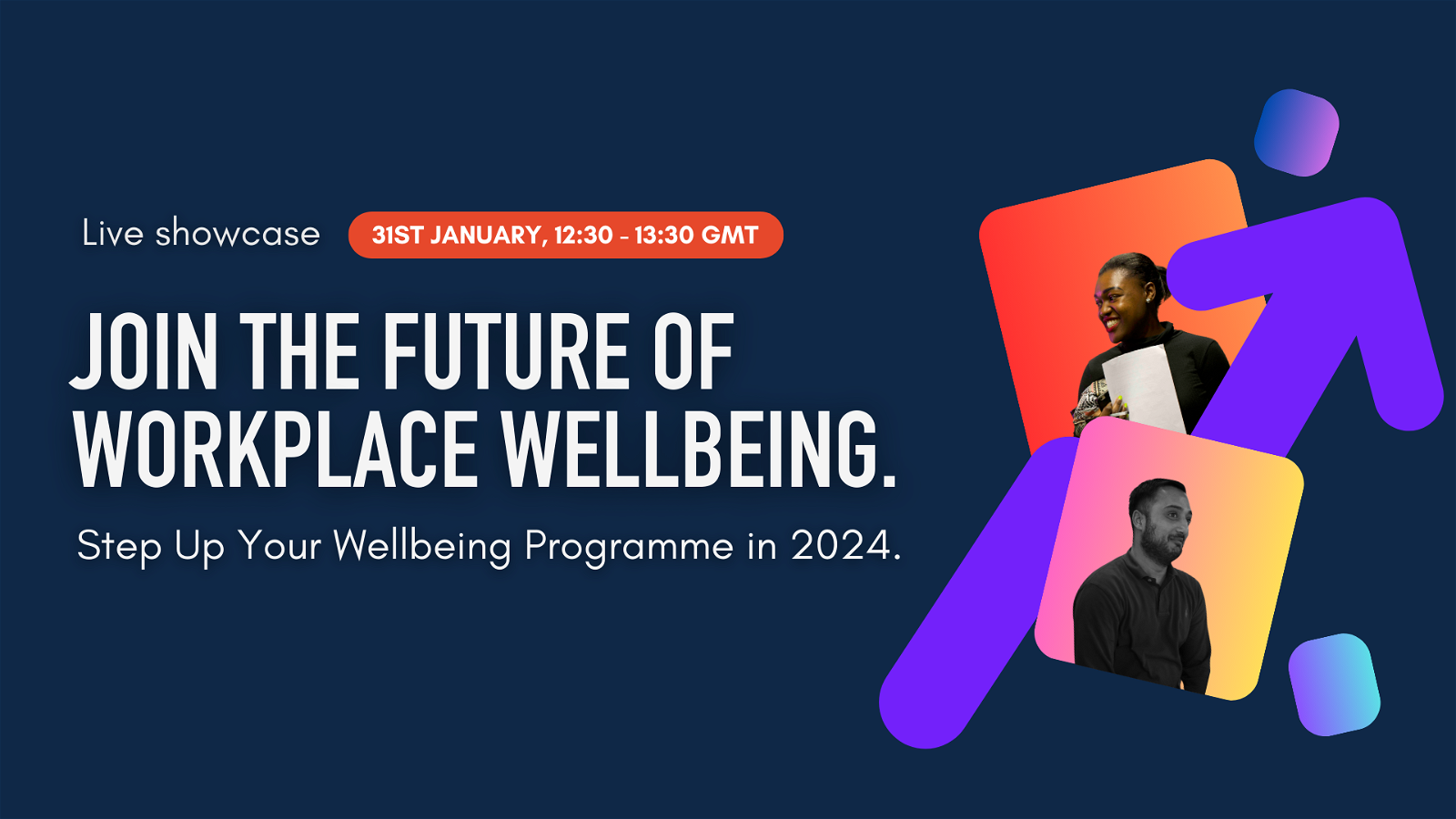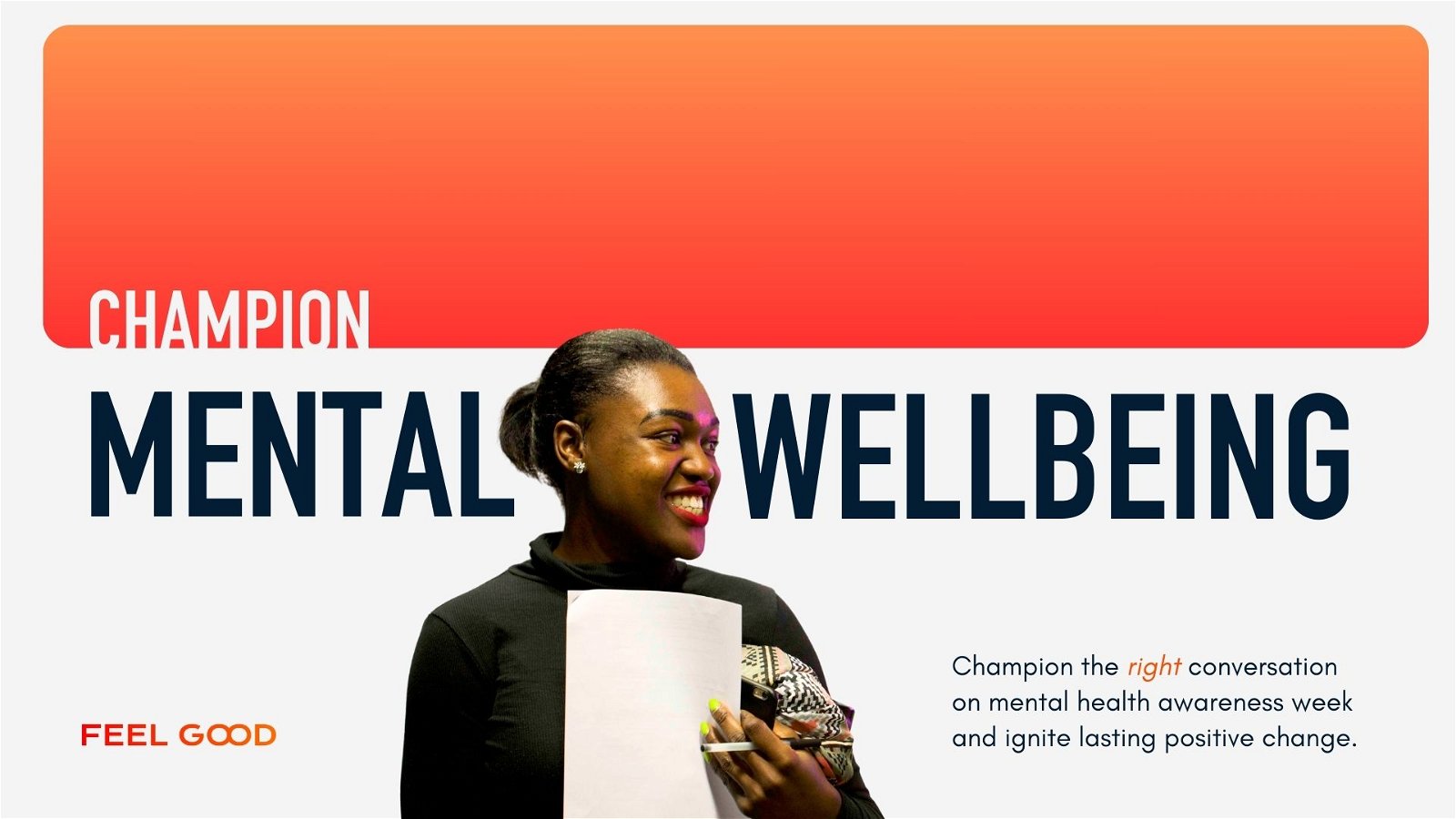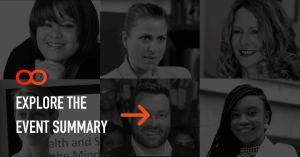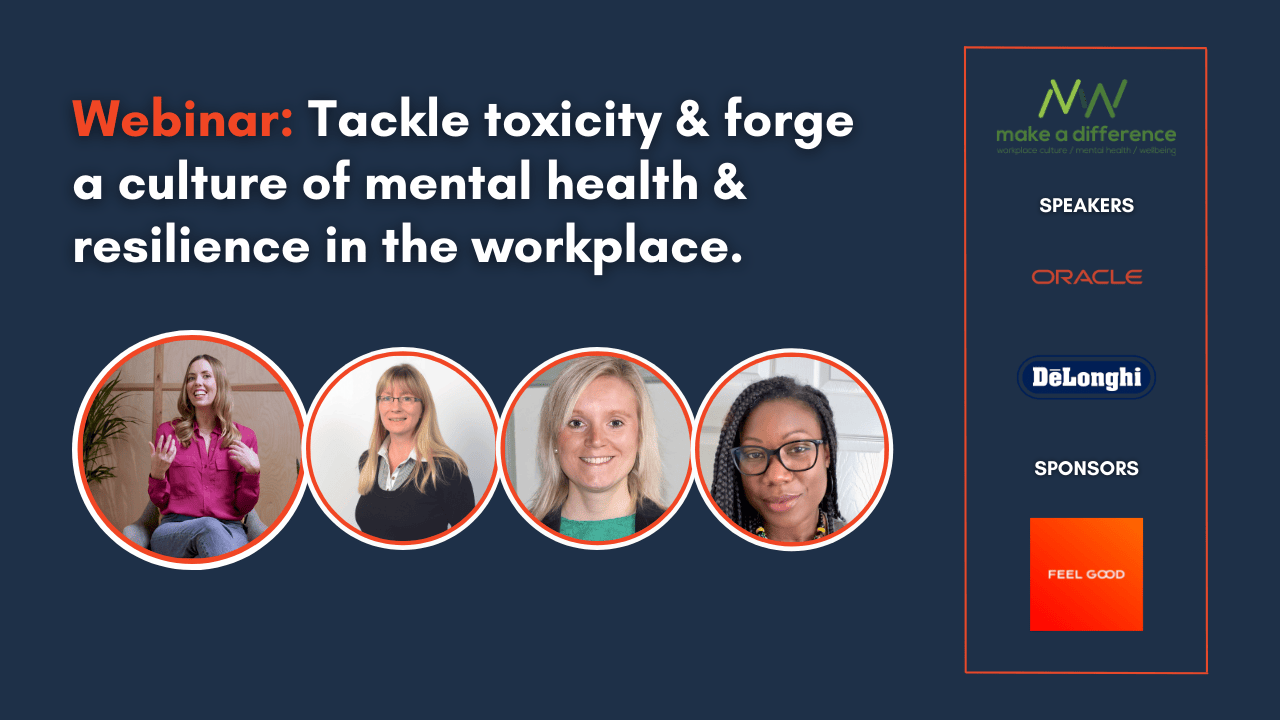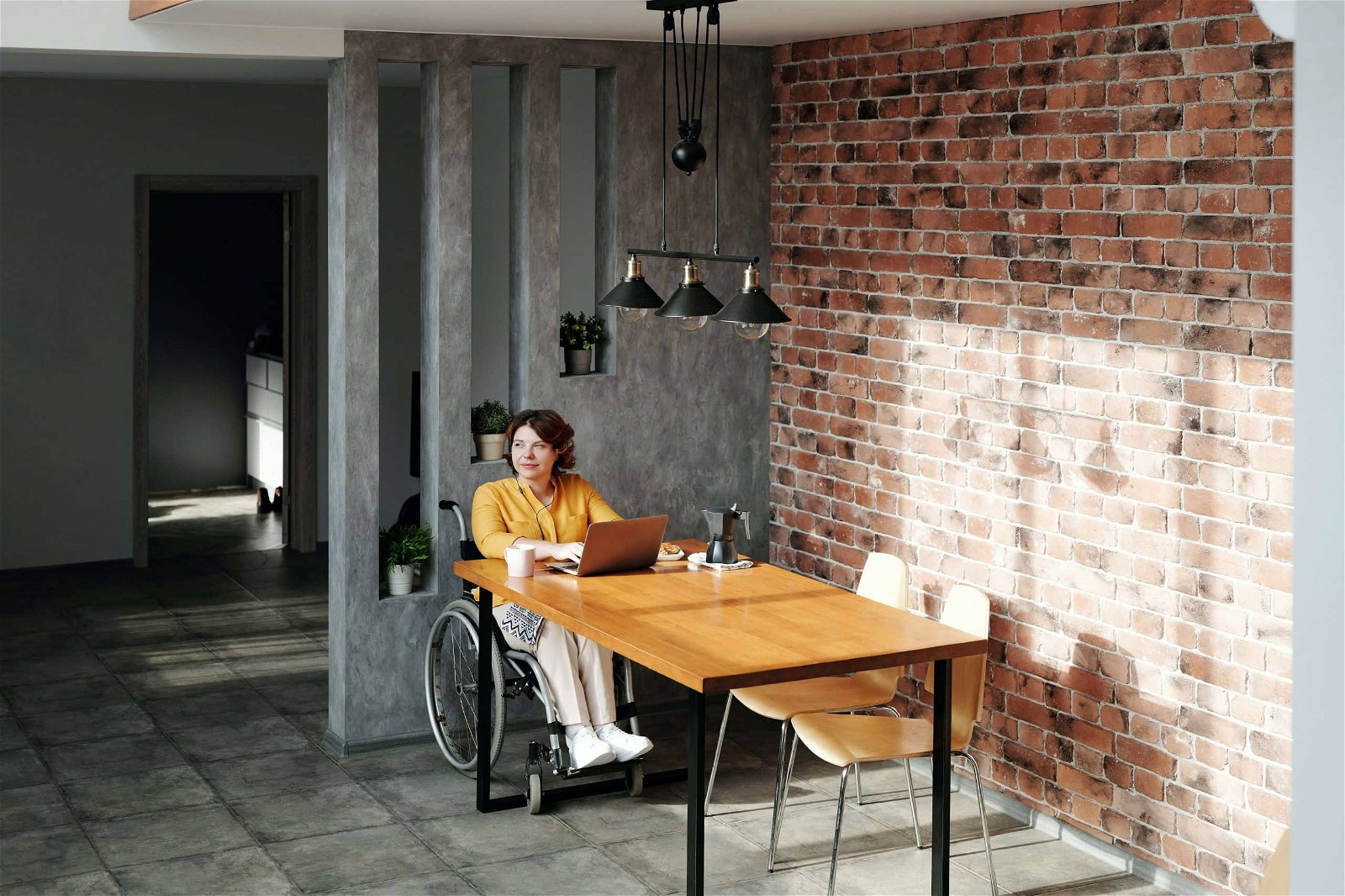Posted on: September 30, 2021
Feel Good Guide: World Mental Health Day
Feel Good Guide: World Mental Health Day Mental Health today Mental Health in an unequal world- what does it really mean? Why is there inequality in access ...
By Andreea Faluvegi

Feel Good Guide: World Mental Health Day
- Mental Health today
- Mental Health in an unequal world- what does it really mean?
- Why is there inequality in access to mental health support?
- Inequality in organisations
- Why should I care and how can we be proactive as organisations?
Mental Health today – your responsibility as an organisation
Mental health at work needs redefining. Good mental health and high performance are bidirectional and it’s unsustainable to have one without the other.
We live in a world characterised by relentless change and uncertainty. Our working lives have never been more challenging, and work-related stressors contribute to a very significant proportion of mental health distress. The current pandemic has added additional stressors to our bodies, leading to an unprecedented level of mental health challenges. The rates of depression in adults in the UK in early 2021 was over double of rates pre-pandemic.
World Mental Health day (10th October 2021) aims to raise awareness of mental health issues and mobilise efforts to support mental health. This year’s theme is ‘Psychological wellness for all: Greater investment – Greater access’, implying that mental support services should be inclusive and accessible.
Organisations have a wonderful opportunity to cultivate and support a diverse workforce, from more inclusion in protection plans to deploying learning and development programmes aimed at empowering their people through education and reducing stigma. But first, we must explore and understand what inequality in mental health means. From this, we can strategise what it means for your organisation and what we can do to mitigate inequalities and ultimately change culture and perception.
Mental Health in an Unequal World – what does it really mean?
When we talk about mental health, we often look at population-level statistics. This means we take the average of what specific populations are experiencing and use them in decision-making and measuring the success of mental health initiatives. While global, country-specific, or even organisation-wide statistics have great value, they can’t portray a clear picture of the nuances real people experience regarding mental health.
When looking at different groups, statistics illustrate that mental health is not equal. Minority groups are often more likely to be impacted by mental health challenges.
LGBTQ+: Rates of common mental health problems and lower wellbeing than heterosexual people, and the gap is more significant for older adults (over 55 years) and those under 35 than during middle age.
Black, Indigenous, People of Colour (BIPOC): Men and women from Afro-Caribbean communities in the UK have higher rates of post-traumatic stress disorder and suicide risk and are more likely to be diagnosed with schizophrenia.
Children: Children from the poorest 20% of households are four times as likely to have serious mental health difficulties by the age of 11 as those from the wealthiest 20%.
People with physical disabilities: For example, deaf people are twice as likely to experience mental health difficulties.
People with Autism: Eighty per cent of adults with autism have at least one mental health condition.
Men: Three-quarters of the registered suicides have been men since the mid-1990s.
Why is mental health unequal?
The mechanisms through which mental health manifests for each individual are complex. There is no singular aspect that causes inequality in mental health, but there is a series of interrelated factors that all add to the puzzle. Included are not only factors that lead to increased predisposition to develop mental health challenges, but also factors linked to access to mental health support.
While we explain some of the factors below, we want to encourage you to have a look at which aspects you have power over. What is one thing we can control, and how are these being manifested in organisations?
Unequal predisposition to mental health challenges – the interplay between biological factors and life-course environment
The predisposition to develop mental health challenges is an interplay between genetic factors and the environment in which we grow up. While the research in genetic factors is in its infancy, we know for sure that genes are not acting alone. Genes can make people more vulnerable to developing mental health challenges, but these vulnerabilities will be amplified by adverse conditions throughout the life course and moderated by favourable living conditions.
As WHO points out, mental health and many common mental disorders are shaped to a great extent by the social, economic, and physical environments in which people live.
Here are a few examples of external factors the World Health Organisation identified that impact mental health:
- Parents, families, and households: parenting behaviours/attitudes; material conditions (income, access to resources, food/nutrition, water, sanitation, housing, employment), employment conditions and unemployment, parental physical and mental health, pregnancy and maternal care, social support;
- Community: neighbourhood trust and safety, community-based participation, violence/crime, attributes of the natural and built environment, neighbourhood deprivation;
- Local services: early years care and education provision, schools, youth/adolescent services, health care, social services, clean water and sanitation;
- Country-level factors: poverty, inequality, discrimination, governance, human rights, armed conflict, national policies to promote access to education, employment, health care, housing and services proportionate to need, social protection policies that are universal and proportionate to need.
Factors that provide us with more opportunities to access better health care are called protective factors, and conversely, risk factors that make us more vulnerable to poorer mental health outcomes.
However, we want to zoom in on a few psychological factors that impact access to mental health that can manifest in organisations:
Beliefs about mental health
Individuals, families, races, communities, and countries all have different attitudes regarding mental health. Cultural and religious teachings frequently determine views about the causes and nature of mental illness, as well as attitudes toward those who are mentally ill. Such beliefs are also shaped in organisations by the openness or stigma surrounding mental health and aspects such as psychological safety.
Eight out of ten workers state that negative perceptions towards mental illness prevent them from seeking treatment. Stigma is dangerous – organisations have a fantastic opportunity to open up the conversation and be the change their people need.
Beliefs about processing emotions and coping styles
Culture can influence how people describe experiencing symptoms of poor mental health. Organisational culture and the language used to describe mental health challenges can impact whether people choose to accept and talk about their physical and emotional experiences.
Gender differences can occur in beliefs about what is acceptable in terms of coping mechanisms. Men are less inclined than women to seek help for psychological issues and are more likely to engage in substance abuse as a coping mechanism. However, the language used to discuss mental health challenges can impact the likelihood for employees across the genders to engage with the topic.
Minority pressure
There is additional stress placed on minorities in organisations, which can be based on differences in ethnicity, gender, religion, sexuality, disability or physical appearance.
Racism, stigma, and inequities, for example, can have an impact on the mental health of people from BAME communities. Racism can manifest itself in a variety of ways, ranging from microaggressions (subtle but offensive statements) to blatant negative words to verbal or physical aggression. Racism may increase the chances of developing mental health issues such as psychosis and depression. The fact that white professionals do not comprehend others’ experiences with racism or discrimination adds to the burden.
Access to support for everyone
In the UK, only one in three people who experience mental health problems can access the support they need. The numbers are even lower in some other parts of the globe: “In low- and middle-income countries, over 75% of people with mental health conditions receive no treatment whatsoever’’ – Elisha London, founder and CEO of United for Global Mental Health, told Global Citizen.
This must be carefully understood and considered especially by global companies. As mental health is not equal, we cannot expect only one solution to work for everyone.
Why should I care and how can we be proactive as organisations?
People spend ⅓ of their lives at work – that’s almost 90,000 hours throughout a lifetime. It’s where most of us get a sense of purpose or belonging. Organisations can lead the charge and make real, impactful changes.
The productivity loss resulting from poor mental health might cost the global economy as much as $1 trillion per year. Anxiety, for example, is known to decrease work performance, reduce job satisfaction, and negatively affect interpersonal relationships with colleagues, among other ills. From this, we can see without a doubt that happier, more mentally healthy employees lead to a more productive, prosperous business.
So, it’s evident we need to open up the conversation about mental health in our organisations. How do we do this?
- We can learn from other organisations – see what works for them and adapt it to our unique environments.
- We can collaborate with experts in business and psychology to deepen our understanding and remove the barriers to openness that sustain stigma.
- We can talk to our colleagues and friends about our individual experiences with our mental health.
- We can listen to people from marginalised groups to seek understanding that we would not instinctively know.
We hosted an event where these topics will be shared and discussed by leaders in their field at our live panel event to celebrate World Mental Health Day where we hope to inspire people to start the conversation and ideate solutions to combating mental health difficulties within organisations.
At Feel Good, we are experts in supporting progressive organisations to create healthy, resilient and inclusive workforces. With over a decade’s experience curating amazing learning experiences, we are your strategic thinking partners. From developing expert-led webinars in consultation with psychologists, nutritionists, exercise physiologists and breath experts, we strive to support organisations with preventative solutions that positively impact the mental health of their employees worldwide.
Explore our event summary
PSYCHOLOGY-POWERED SOLUTIONS THAT DRIVE IMPACT
Feel Good evolves how your people think, feel and perform with strategic thinking and engaging learning solutions powered by the latest organisational & behavioural science.





